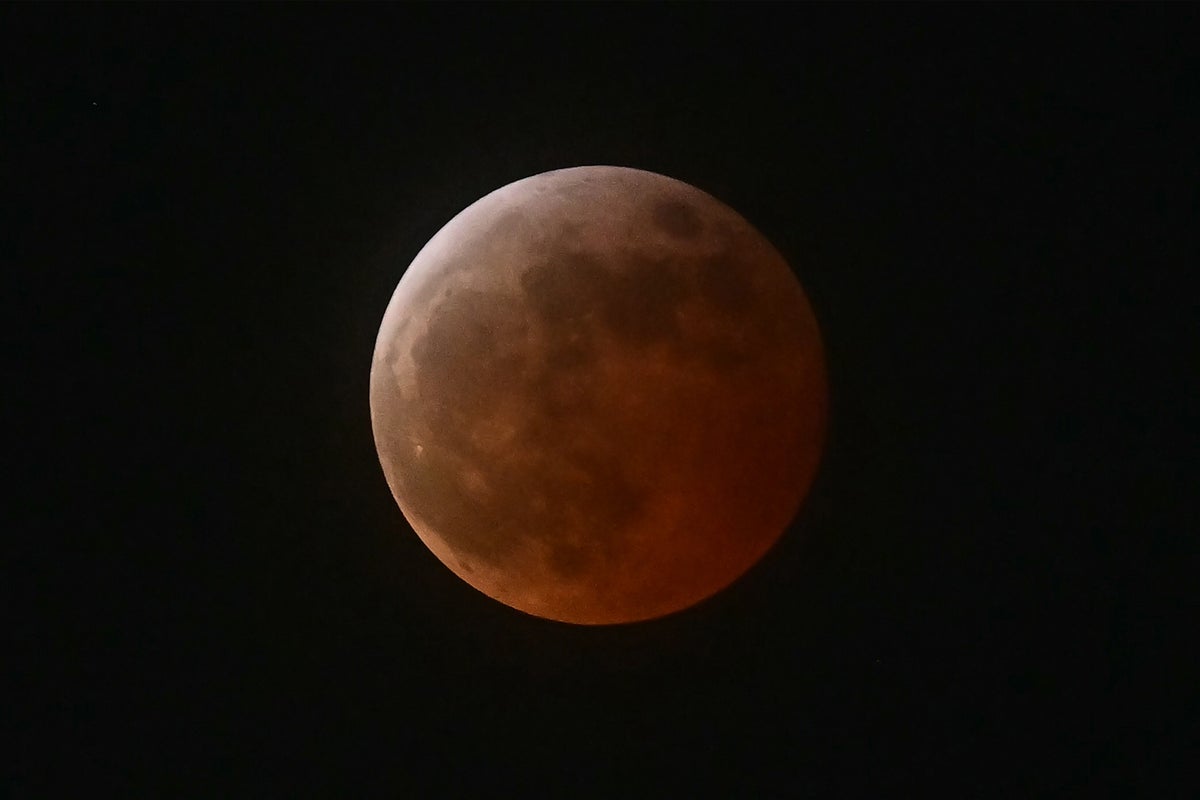Your support helps us to tell the story
From reproductive rights to climate change to Big Tech, The Independent is on the ground when the story is developing. Whether it’s investigating the financials of Elon Musk’s pro-Trump PAC or producing our latest documentary, ‘The A Word’, which shines a light on the American women fighting for reproductive rights, we know how important it is to parse out the facts from the messaging.
At such a critical moment in US history, we need reporters on the ground. Your donation allows us to keep sending journalists to speak to both sides of the story.
The Independent is trusted by Americans across the entire political spectrum. And unlike many other quality news outlets, we choose not to lock Americans out of our reporting and analysis with paywalls. We believe quality journalism should be available to everyone, paid for by those who can afford it.
Your support makes all the difference.Read more
A ‘blood moon’ will rise in the sky this weekend, thanks to a lunar eclipse.
Those looking up to the sky over the weekend could see the full Moon turning a deep red. That will happen on Sunday, 7 September.
It is the first time a lunar eclipse can be seen in the UK since 2022. But it will also be visible – and better seen – in many other parts of the world world including parts of Africa and the Middle East.
Unlike many other celestial spectacles, the lunar eclipse can be seen relatively easily: it requires no special timing, equipment, skills or setting. It just means looking up at the Moon at the right time.

open image in gallery
As soon as the moon rises from behind the horizon, it will be darker and redder than usual
A lunar eclipse happens when the Earth moves between the Moon and the Sun, obscuring the latter and turning it dark. The light that reaches the lunar surface is scattered by the Earth, so that it appears red to people watching from the ground.
That will start at 4.28pm UK time, when the Moon starts to move into the shadow left by the Earth. The eclipse proper happens an hour later, when the Moon moves into the darker centre of the Earth’s shadow.
Unfortunately for viewers in the UK, the Moon will not have risen above the horizon yet. That happens at 7.30pm, but the eclipse will still be going at that time, and people in the UK should be able to see the second half.
The Moon will be low on the horizon, however, so the view will be better from a high point with a clear view out towards the East, where the Moon should be sitting on the horizon.
The next opportunity to see a lunar eclipse in the UK comes on 28 August, 2026. But that is only a total eclipse, unlike this weekend’s total one.

